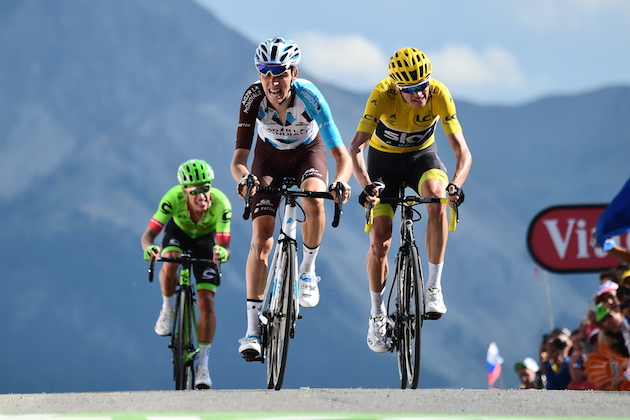Should Grand Tours be shortened to two weeks? UCI president says he'll consider the idea
UCI president David Lappartient says he's open-minded about shortening cycling's most prestigious races

We might naturally think of the Tour de France, Giro d'Italia, and Vuelta a España as being 21 stages and three weeks in length, but the president of the UCI thinks that the world of cycling should be open to the prospect of reducing the length of the most prestigious stage races.
David Lappartient, who was elected to his position in September, said that although he would not force the Grand Tours, particularly the Vuelta a España, to reduce their lengths, he would still be open to discussing the idea.
>>> Team sizes should be reduced to just six riders, says new UCI president
"When we talk about reform, we have to see it from a global point of view. There is nothing that can not be discussed," Lappartient told Spanish cycling website Ciclo21 when asked about the idea of reducing the Grand Tours to two weeks in length.
"I do not want to force any reduction in the duration of the races. Yes, it is a discussion we can have, but the debate that interests me is that of the economic model that we must follow and if, for example, it were the case that the reduction could bring a better economic model, then why not talk about it?"
Watch: Tour de France route guide
http://www.youtube.com/watch?v=QaCHePwsEuk
The latest race content, interviews, features, reviews and expert buying guides, direct to your inbox!
The suggestion of two-week Grand Tours is nothing new, with Brian Cookson, Lappartient's predecessor at the head of the UCI, having previously mooted the idea as part of reforms to create a more rider-friendly calendar.
However Lappartient seems to be talking about the idea as part of wider attempts to expand the global appeal of cycling, with the reduction in the length of Grand Tours potentially opening slots in the calendar for more races in other parts of the world.
"We must bear in mind that cycling is a global sport, but the roots of this sport are in Europe: in Italy, in Belgium, in France, in Spain and it is with the historical races with which we are able to promote cycling worldwide," the Frenchman continued.
"On the other hand, we can not focus only on Europe. We must be aware that we have to be in China, in Australia, in Canada, in the United States...
"I think it is something important for our sport. It is something that can be important for the European organizers because it gives them the opportunity to sell their rights in these emerging countries and can also be important for business and the stability of the races and teams."
Henry Robertshaw began his time at Cycling Weekly working with the tech team, writing reviews, buying guides and appearing in videos advising on how to dress for the seasons. He later moved over to the news team, where his work focused on the professional peloton as well as legislation and provision for cycling. He's since moved his career in a new direction, with a role at the Department for Environment, Food and Rural Affairs.